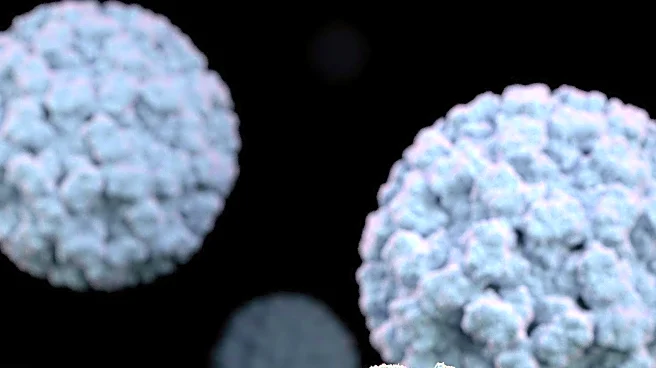What's Happening?
Recent research has examined the role of plasmacytoid dendritic cells (pDCs) in viral infections, revealing unexpected redundancy and potential harmfulness. pDCs are known for their role in antiviral immunity,
primarily through the production of type I interferons (IFNs). However, studies indicate that pDCs may not significantly affect susceptibility to certain viral infections, such as HSV-1, and could contribute to systemic rather than local antiviral responses. The findings suggest that while pDCs are integral to immune responses, their role may be more complex and context-dependent than previously understood.
Why It's Important?
Understanding the nuanced role of pDCs in viral infections is crucial for developing targeted immunotherapies. The potential redundancy or harmfulness of pDCs could influence the design of treatments that harness or modulate IFN-I effects. This research may impact U.S. public health strategies, particularly in managing viral outbreaks and developing vaccines. It highlights the need for precision in immunotherapy approaches, potentially leading to more effective treatments with fewer side effects.
What's Next?
Further investigation into the mechanisms by which pDCs influence viral infections is necessary. Researchers may explore how pDCs can be targeted or modulated to enhance antiviral responses without causing harm. This could lead to innovative therapies that improve patient outcomes in viral infections. Additionally, the findings may prompt a reevaluation of current immunotherapy strategies, potentially leading to new guidelines and practices in clinical settings.
Beyond the Headlines
The study of pDCs in viral infections opens discussions on the broader implications of immune cell functions in disease management. It raises ethical considerations regarding the manipulation of immune responses and the balance between efficacy and safety in treatment development. Long-term, this research could shift paradigms in immunology, influencing how diseases are understood and treated.










